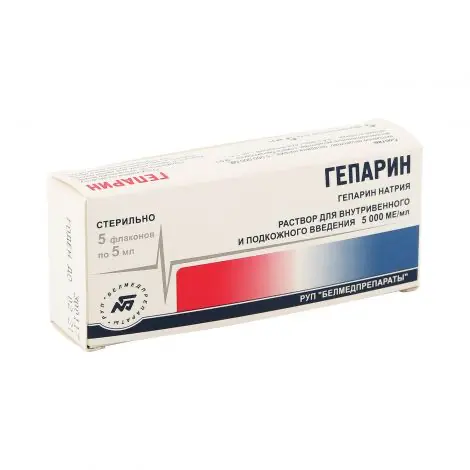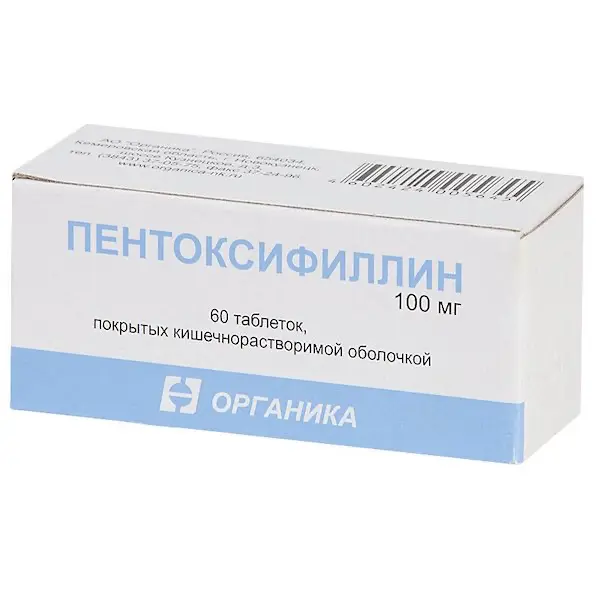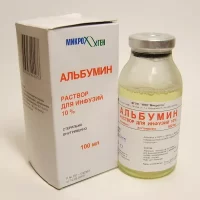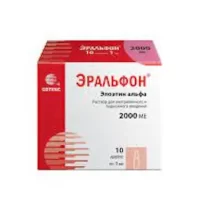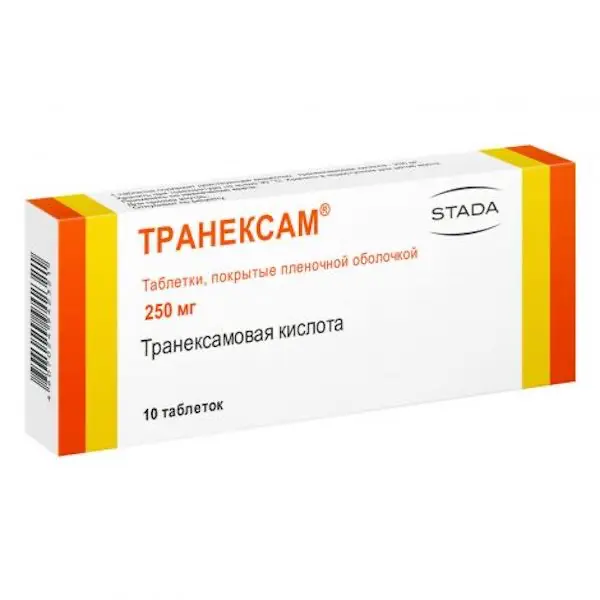Description
Heparin Pharmacodynamics
Heparin belongs to the group of medium molecular weight heparins, slows down fibrin formation, is a physiological anticoagulant, potentiating the ability of antithrombin III to inhibit activated clotting factors IXa, Ha, X1a, XPa, and in high concentrations – and thrombin activity. Especially important is the ability to inhibit thrombin and activated factor X.
Heparin is not able to dissolve the thrombus (it is not a fibrinolytic), but can reduce the size of the thrombus, stopping its increase, in which case part of the thrombus dissolves under the action of the fibrinolytic enzyme – plasmin. Inhibits the activity of hyaluronidase, has a hypolipidemic effect. It decreases surfactant activity in lungs, inhibits excessive synthesis of aldosterone in adrenal cortex, binds adrenaline, modulates ovarian response to hormonal stimuli, increases activity of parathormone. As a result of interaction with enzymes, it can increase the activity of brain tyrosine hydroxylase, pepsinogen, DNA polymerase and decrease the activity of myosin ATPase, pyruvate kinase, RNA polymerase, pepsin.
In patients with coronary heart disease (in combination with atherosclerosis of coronary arteries) reduces the risk of acute coronary artery thrombosis, myocardial infarction and sudden death. Reduces the frequency of recurrent infarcts and mortality of patients who had a myocardial infarction. In high doses, it is effective for pulmonary embolism and venous thrombosis; in low doses – for the prevention of venous thromboembolism, including after surgical operations. Deficiency of antithrombin Sh in plasma or in the site of thrombosis may reduce the antithrombotic effect of heparin
Indications
Thrombosis, thromboembolism (prevention and treatment), prevention of blood clotting (in cardiovascular surgery), coronary thrombosis, disseminated intravascular clotting, postoperative period in patients with a history of thromboembolism, inhibition of blood clotting in extracorporeal circulation.
Contraindications .
Hypersensitivity to heparin; erosive-ulcerative lesions, tumors and polyps of the gastrointestinal tract; subacute bacterial endocarditis; expressed liver and renal dysfunction; severe uncontrolled arterial hypertension; hemorrhagic stroke; recent operations on the brain and spinal cord, eyes, liver or biliary tract; proliferative diabetic retinopathy; diseases accompanied with
decreased clotting time; threatened miscarriage; thrombocytopenia; increased vascular permeability; pulmonary bleeding; haemophilia; thrombocytopenia.
Dosage and administration
- Heparin is administered as a continuous intravenous infusion or as a subcutaneous or intravenous injection.
- The initial dose of heparin administered for therapeutic purposes is 5000 units, administered intravenously, after which treatment is continued using subcutaneous injections or intravenous infusions.
- Maintenance doses are determined according to the route of administration:
-On continuous intravenous infusion, administered at a dose of 15 IU/kg body weight per hour;
-When administering regular intravenous injections, 5,000-10,000 IU of heparin every 4-6 hours;
-When injected subcutaneously, every 12 hours 15,000-20,000 IU or every 8 hours 8,000-10,000 IU - Before each dose is administered, blood clotting time and/or activated partial thromboplastin time (APT) should be tested in order to adjust the subsequent dose.
- Subcutaneous injections are preferably performed in the area of the anterior abdominal wall, other injection sites (shoulder, thigh) can also be used as an exception.
- Anticoagulant effect of heparin is considered optimal if blood clotting time is prolonged by 2-3 times compared to normal value, activated partial thromboplastin time (APTB) and thrombin time are increased by 2 times (if it is possible to monitor APTB continuously).
- Patients undergoing extracorporeal circulation are prescribed Heparin at a dose of 150-400 IU/kg of body weight or 1,500-2,000 IU/500 ml of preserved blood (whole blood, red blood cell mass).
- In patients on dialysis, dose adjustment is performed according to the results of coagulogram.

